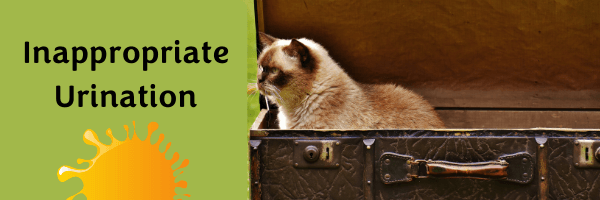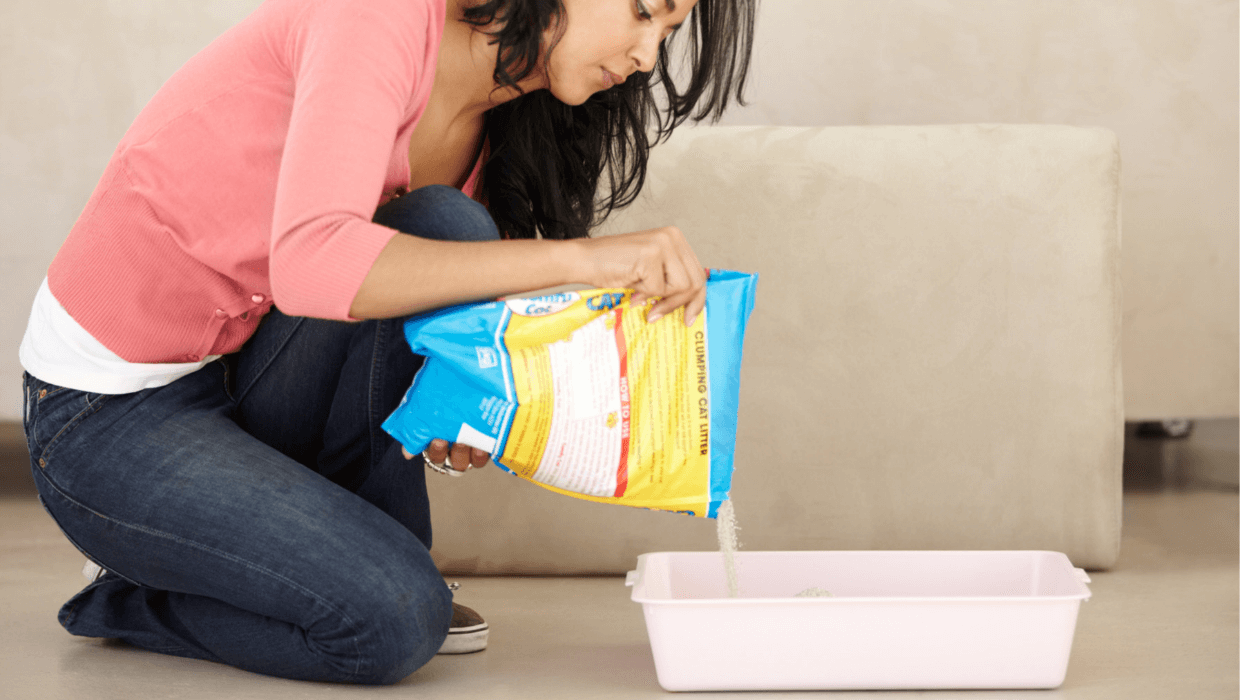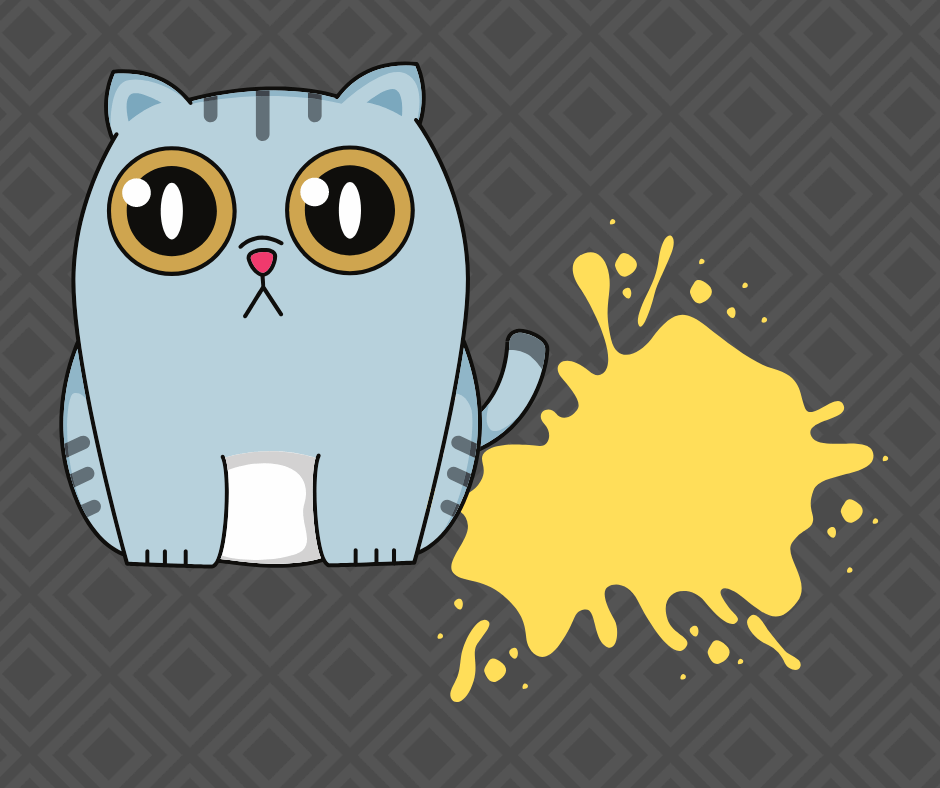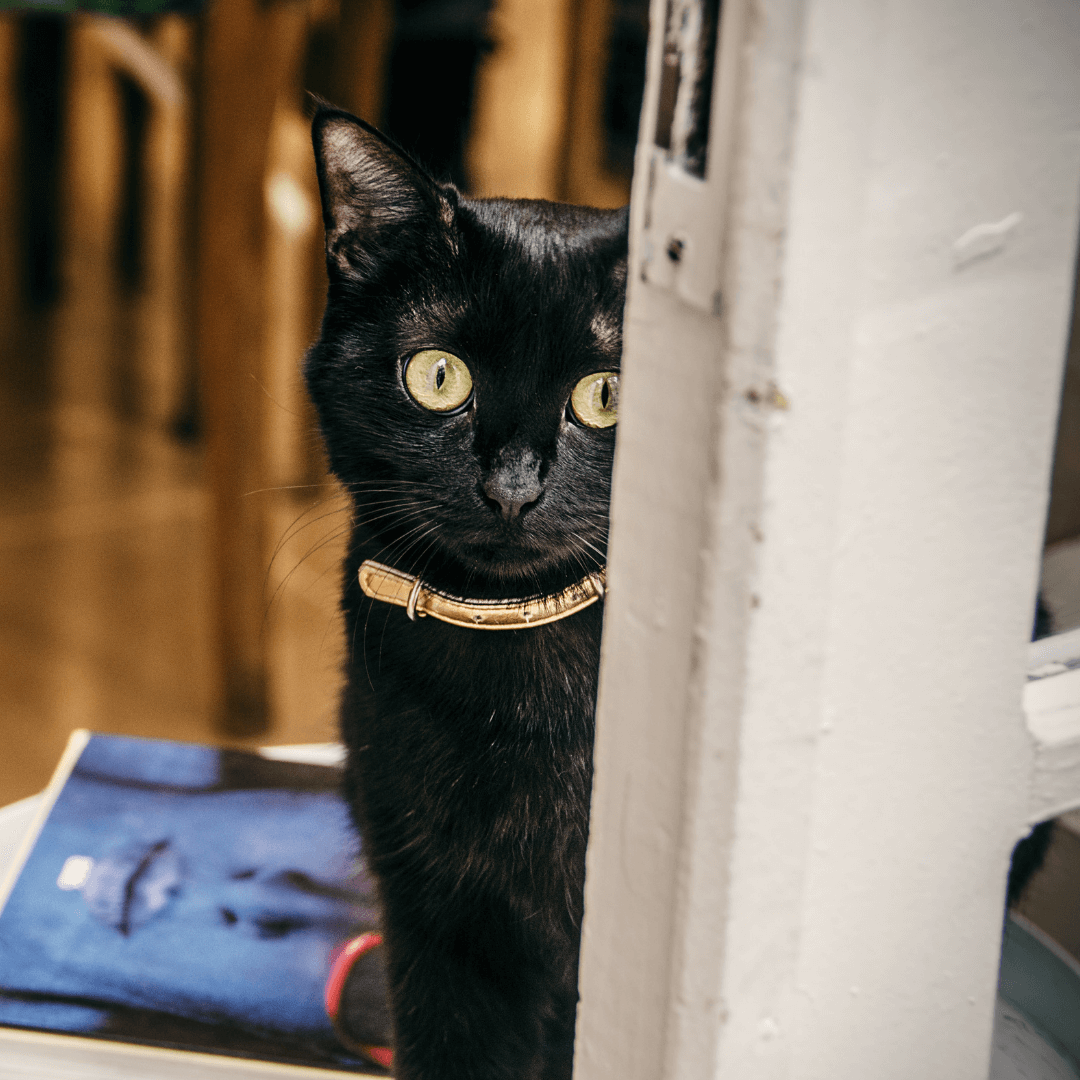
If you have spent much time living with a cat you may have experienced the displeasure one does when they realize that “Fluffy” decided to skip the litter box and instead urinate on the bed, or in a pile of clothes, someone’s suitcase, or the bath tub. Although this can be a common feline behavior problem it is important to make sure there aren’t any underlying medical issues.

Inappropriate urination is often a symptom of Feline Lower Urinary Tract Disease (FLUTD), which is the most common cause for feline veterinary visits. Other symptoms include frequent trips to the litter box, producing smaller clumps of urine in the litter, blood in the urine, licking the genitals, and straining to urinate. In some cases a cat may develop a urethral obstruction and is therefore unable to urinate (“blocked”); this is a medical emergency. Although male cats are much more likely to develop an obstruction due to their smaller urethras, female cats are equally represented when discussing FLUTD.

So what is “FLUTD”? It is a collective term used to describe a number of frequently diagnosed pathologies of the feline urinary system. These include the development of crystals in the urine, which can subsequently aggregate to form urinary stones, urinary tract infections, and Feline Interstitial Cystitis (FIC). FIC is a medical condition where a cat’s bladder becomes inflamed and painful secondary to environmental stress. All of these diseases can cause the symptoms listed above, however treatment may vary depending on the underlying cause. Treatments will often include pain medication, muscle relaxers, fluid therapy, and a long-term diet change. In older cats bladder tumors are another potential cause for inappropriate urination. In order to help diagnose the underlying issue your veterinarian will want to analyze a urine sample, and depending on those results may recommend imaging of the urinary system, a urine culture, and possibly blood work.
Once all medical causes of inappropriate urination have been ruled out then we may have a behavioral problem. We are quick to blame the cat and chalk it up to him “being mad” at us. Although the cat is probably trying to get your attention, the behavior actually stems from stress, not spite. There are many potential stressors in a cat’s life that we as humans may not be aware of. Almost any change in a cat’s environment, or any situation that is out of their control can cause stress for a cat. New people/ visitors, a change in furniture, a change in type of litter or location of the box, unexplained noises, and awareness of other cats outside are some of the common causes of stress in cats.

It is important to work with your veterinarian to determine the underlying reason(s) for a cat to urinate inappropriately. The medical causes can usually be treated and managed long term. A stressed cat can be helped with environmental changes and enrichment, pheromones, and if needed anti-anxiety medication. One of the best resources available for more information is The Indoor Pet Initiative at: https://indoorpet.osu.edu/
Maryam Salt, DVM
Queen Anne Animal Clinic
